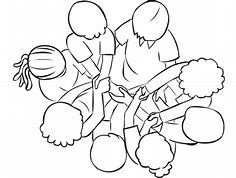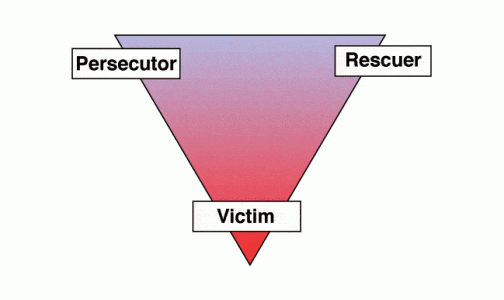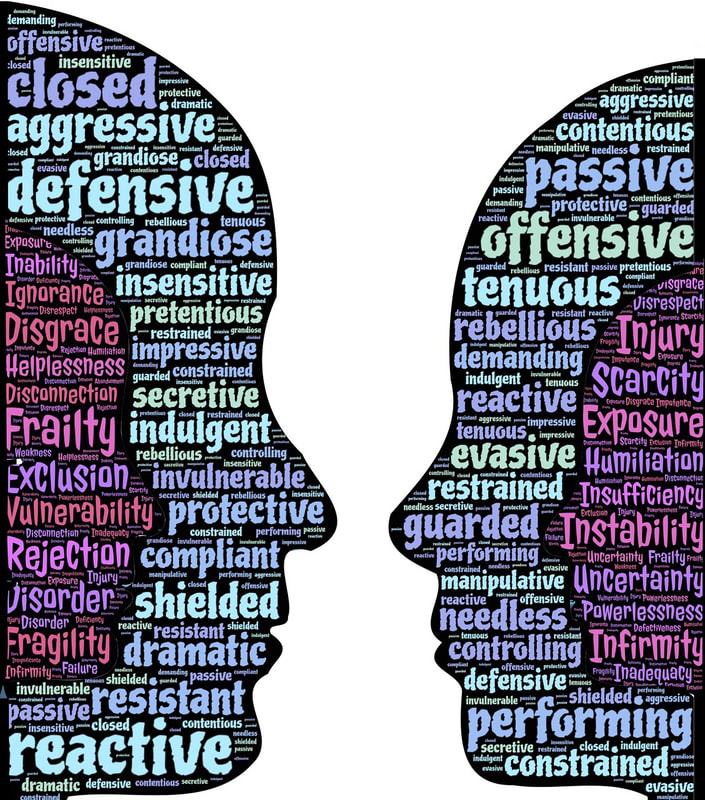Spring, 2020
Millions of people are currently living in quarantine in order to reduce the spread of the Coronavirus. This will be challenging for all, but for some, it will be especially difficult, if not downright dangerous. There are couples in the middle of separations or divorces who, for financial reasons, are forced to stay together. There are adult children of abusive, addicted or mentally ill parents who may have no choice but to move back into their childhood homes, young children who are vulnerable to witnessing the negative or even violent interactions of their parents may be even more isolated and unsupported by other adults than usual; and children whose oppositional behavior challenges their parents’ ability to cope in the best of times, may react with even more erratic behavior given the stressful circumstances through which we are all living. In short, there are roommates of all sorts with whom no amount of rational dialogue will change their discourteous, hostile or even abusive behavior. On the brighter side, there are things you can do unilaterally to make a positive difference.
Here are some suggestions for dealing with toxic relationships in quarantine:
Millions of people are currently living in quarantine in order to reduce the spread of the Coronavirus. This will be challenging for all, but for some, it will be especially difficult, if not downright dangerous. There are couples in the middle of separations or divorces who, for financial reasons, are forced to stay together. There are adult children of abusive, addicted or mentally ill parents who may have no choice but to move back into their childhood homes, young children who are vulnerable to witnessing the negative or even violent interactions of their parents may be even more isolated and unsupported by other adults than usual; and children whose oppositional behavior challenges their parents’ ability to cope in the best of times, may react with even more erratic behavior given the stressful circumstances through which we are all living. In short, there are roommates of all sorts with whom no amount of rational dialogue will change their discourteous, hostile or even abusive behavior. On the brighter side, there are things you can do unilaterally to make a positive difference.
Here are some suggestions for dealing with toxic relationships in quarantine:

1. Do Not Tolerate Physical Danger
Toxicity in relationships may be described as falling on a spectrum from causing irritation, stress, all the way to emotional, psychological and physical harm. If you are experiencing a situation where there is a real risk or an ongoing reality of domestic violence or abuse, please don’t suffer in silence. See this NY Times article for more information about resources that may help during the pandemic. At the very least, tell someone about your situation and seek support from a qualified mental health professional. Abuse flourishes in secret, so it’s important to overcome shame and guilt and ask for the help you need.
2. Understand Emotional and Mental Abuse
With so many people fighting for their lives in hospitals, it may seem your relationship problems pale in comparison, but don’t minimize your own suffering just because others are dealing with so much. Furthermore, remember that an undermined immune system makes us more vulnerable to contracting the Coronavirus, so avoiding conflict, learning to stay calm and practicing good self-care right now really are life and death issues.
Psychological harm (anxiety, depression and other forms of mental suffering) is as unacceptable as physical harm and should be addressed with equal concern. This article by Ann Pietrangelo is very helpful in describing some of the behaviors and dynamics that may be causing you pain in your relationship/s:
How to Recognize the Signs of Mental and Emotional Abuse
Having the language to express what you are experiencing and the support of outsiders to validate your experience may in and of itself be crucial. Don’t hesitate to reach out for professional help if you are in an emotionally abusive relationship.
Even if the relationship toxicity you are facing falls on the lower end of the spectrum, the impact of living with difficult people should not be underestimated. Have compassion for yourself, and, if you can, have compassion for the others you find difficult. Recognize just how hard what you’re going through may be, especially in the context of this uncertain period of home lockdown. Be open to learning new ways to understand your relationship/s.
3. Understand Boundaries and Don’t Minimize the Impact of Relationships
We are collectively living through an experiential crash course on just how important social relationships are to our well-being as humans. We are all interconnected and, depending on the circumstances, there are healthy and
unhealthy amounts of distance that we maintain between ourselves and others. Who we are and how we feel is influenced by the people around us and the roles we fulfill (mother, spouse, brother, friend, etc.). In a society like ours, which puts so much emphasis on individuality and narcissistic fulfillment, we don’t always pay enough attention to our need for love, connection and interpersonal relationship satisfaction.
Just as our mutual vulnerability to spreading germs is bringing our attention to our physical vulnerabilities, too much isolation can remind us of our need for touch and connection with others. Truly toxic relationships remind us that interpersonal boundaries, i.e. the limits and expectations for how we treat one another, are crucial to establishing healthy dynamics among people. We are vulnerable to the feelings, moods and emotional energy of others (and vice versa). We all have defenses and coping strategies for protecting ourselves from getting hurt in this realm, but some are more effective than others.
4. Take A Systems Perspective
The ability to identify as BOTH an individual (“I”) and as a participant in relationships (“we”) is a key life skill that every person must establish to navigate society effectively. Balancing our own needs with the needs of those around us is especially crucial at this time of sharing close quarters. Being able to reverse roles, i.e. see things from another’s point of view, enables us to be empathetic and ask for more or less from others for the good of the group. When living with one or more people who are unable to reverse roles with others, it can be extremely stressful. It is easy to feel trapped, angry, frustrated and/or depressed when we are treated as if our feelings and needs don’t matter, however, recognizing that others are limited may allow you to adjust your expectations of them while exercising your own strengths.
If you think of your family/household as a “system” of interdependence, you’ll recognize that when one part of the system changes, the rest of it will be forced to change in response. A good metaphor for this is if you picture a group of people in a circle holding onto a large taut rubber band. As everyone leans back, the tension in the band increases. Even if one person lets go of the tension that binds everyone together, the others will inevitably have to re-balance their relationship to one another and to the rubber band (the “system”).
We may not be able to demand that others change, but we can change ourselves. It’s not easy to relinquish a power struggle or “take the high road” towards reconciliation when in conflict with someone who is unwilling to bend,
but you may be surprised at how powerful a change in how you speak or react to others can be in shifting the dynamics among you.
5. Avoid Relationship Pitfalls Single-Handedly
Of course, it’s not always easy to see ourselves; we may unwittingly be contributing to toxic dynamics. Understanding dysfunctional patterns will help. For example, half a century ago, Stephen Karpman observed a pattern of destructive adult interaction that he called The Drama Triangle. He noted the tendency of human beings to experience themselves as victims, perpetrators and rescuers in an ongoing “game” of blame and defensiveness, guilt and co-dependency. This article is helpful in understanding how this plays out and how to avoid falling into the “game”:
KARPMAN'S DRAMA TRIANGLE
As Linda Graham explains (and in keeping with the systems perspective described above), “One person shifting out of role can catalyze the others to shift out of roles and behaviors. What’s especially helpful is for the victim to
begin to 'grow up' and take responsibility for their own empowerment and resourcing themselves to meet their own needs.”
John Gottman, whose research and clinical experience with couples is highly regarded, identified four signs of interpersonal destructiveness in the way couples relate to each other that predict divorce: defensiveness, criticism,
stonewalling and contempt (the Four Horses of the Apolcolypse; see this article for more on that helpful construct). Refusing to exhibit these behaviors yourself may not stop others from doing so, but it will model a new possibility and help deescalate conflict and mutual character assassination.
6. Understand Instinctual Defenses and How to Recognize Alternative Options for Self-Protection
Primitive responses to feeling threatened or attacked come from our instinctual and emotional responses to others. We speak of the 4F’s: fight, flight, freeze or fawn (i.e. when we try to appease a dominant or abusive individual through flattery or submission, even at our own expense). The response that comes will depend on many things: our childhood training, our role/s in the particular relationship, self-awareness, self-esteem and our ability to communicate our needs. We also need to feel empowered to express ourselves without retribution.
 Photo by Callum Skelton on Unsplash
Photo by Callum Skelton on Unsplash
We are all shaped by the experiences we had as children in our families of origin. As adults, we carry habits and imprints from our childhood, whether we are conscious of it or not. We often unwittingly teach others how to treat us by virtue of how we respond to them and we often attract and are attracted to people who respond to us as our parents or siblings did. Intuitively, we feel such people are familiar, even if the relationships are not healthy or pleasant.
7. Understand Past Interpersonal Wounding and How It Affects Your Reactions in the Present
If we were never allowed to speak up for ourselves when we felt interpersonally hurt, harmed, demeaned, mistreated or manipulated, we may unconsciously set the stage for falling into abusive relationships. If when we did speak up, we were punished, undermined, teased or ignored, we may have concluded that self-silencing is the safest course when relating to people who bully, disparage or dominate others.
On the flip side, some of us may become overly aggressive or emotional in expressing our distress in the belief that that is the only way to get our needs noticed or met. We may not understand why this drives people away at the very time when we feel most needy and dependent on their help.
As both parents and partners, it is very common to react to a crisis in the way our parents did. Whether we want to identify with them or not, the modeled behavior we observed (and were subject to) as kids is often what emerges
in times of stress. Although we may recognize that our parents were hurtful or ineffective in parenting us, it is not always easy to resist the pull of history repeating itself. Do your best to be aware of your own reactions and try not to beat yourself up if you notice ineffective coping approaches popping up.
It’s important to understand your own threat responses and to identify what behaviors by others “cross the line” of what you feel is respectful and acceptable. Your emotions are information about how others’ treatment of you does and does not support your sense of feeling safe, cared for and well-regarded. It’s also important to be able to communicate your needs and feelings effectively so that others can hear you and to establish mutual respect.
7. Understand Past Interpersonal Wounding and How It Affects Your Reactions in the Present
If we were never allowed to speak up for ourselves when we felt interpersonally hurt, harmed, demeaned, mistreated or manipulated, we may unconsciously set the stage for falling into abusive relationships. If when we did speak up, we were punished, undermined, teased or ignored, we may have concluded that self-silencing is the safest course when relating to people who bully, disparage or dominate others.
On the flip side, some of us may become overly aggressive or emotional in expressing our distress in the belief that that is the only way to get our needs noticed or met. We may not understand why this drives people away at the very time when we feel most needy and dependent on their help.
As both parents and partners, it is very common to react to a crisis in the way our parents did. Whether we want to identify with them or not, the modeled behavior we observed (and were subject to) as kids is often what emerges
in times of stress. Although we may recognize that our parents were hurtful or ineffective in parenting us, it is not always easy to resist the pull of history repeating itself. Do your best to be aware of your own reactions and try not to beat yourself up if you notice ineffective coping approaches popping up.
It’s important to understand your own threat responses and to identify what behaviors by others “cross the line” of what you feel is respectful and acceptable. Your emotions are information about how others’ treatment of you does and does not support your sense of feeling safe, cared for and well-regarded. It’s also important to be able to communicate your needs and feelings effectively so that others can hear you and to establish mutual respect.
8. Some Practical Approaches to Self-Care and Healthy (Unilateral) Behavior
• Exercise regularly to decrease stress and take good care of yourself. This and other forms of self-care (eating well, sleeping enough, attending to your own needs for alone time, as well as supported connection with others) will give you the energy and resilience you need to manage the stress caused by toxic relationships.
• Don’t respond immediately to whatever is being thrown at you (metaphorically speaking). Keeping yourself calm will help you resist the pull of others’ anger (including irritability), panic or helplessness.
• Ask for time to think about what someone has said, i.e. “You’ve given me a lot to think about. Let me get back to you.” This will de-escalate tension and may even neutralize the conflict entirely.
• Visualize another person’s words or hostility bouncing off a force field around you.
• Pay attention to the physical symptoms that accompany emotional reactions (i.e. increased heart rate, muscle tension, changes to breathing). If you feel yourself shutting down or heating up emotionally, try to stay grounded in your body and focused on the present: zero in on your breathing, stamp your feet, gently tap your shoulders, first one then the other or find other grounding actions to diminish emotional reactivity.
• Remind yourself that feelings pass and even if sadness, fear or anger are causing you distress, you can build your tolerance for such experiences over time. Just as we build up muscles with repeated practice at the
gym, we can build up our emotional strength and self-control over time.
• Try to recognize what is important to you (am I too focused on others? Am I feeling ignored or unloved? Underappreciated? Do I feel intruded on by demands for attention from others when I need some time to myself?)
and express your needs from a calm, centered, “adult” place. If your counterpart can hear you and respond in a new way, great; if not, you’ve done your part in trying to make things better and that’s something positive for you in and of itself.
• Try not to take others’ behavior too personally. Just as we are shaped by the past, the people with whom we are in conflict are as well. Picturing the other person as a child who is out of control may help you tap into
compassion for his/her/their behavior.
• Learn to accept “no.” We can all ask for what we want, but we may have to be ready to accept that we won’t get it. Rejection is never easy, but learning to accept it is a life skill that will serve you in all areas of life. Similarly, saying “no” without becoming overly emotional can be very helpful in defusing toxic conflict.
* * *
Every relationship, every family has a different way of establishing how to communicate, how to make decisions, who is a caretaker and who is cared for, and who has power and who must submit to the power of the other/s. The dynamics that result are not always “fair” and some people’s needs may be prioritized over others’ at different times in the life of such relationships. Recognizing what is causing you difficulty in your relationship/s is a helpful first step in disengaging from toxic patterns. Exercising your own power to make positive change, whether or not others are doing the same, is a sign of maturity and will inevitably make things better.
The reality of the Covid-19 crisis is challenging everyone in different ways. If you are locked down with someone with whom you are in a toxic relationship, take the stress and suffering that result seriously. Find people you feel safe with to vent your frustrations and don't be afraid to ask for professional help, especially if you are being physically or emotionally/psychologically abused. Some situations truly are so toxic that they should not be tolerated.
The National Domestic Violence Hotline is 800-799-SAFE (7233)




